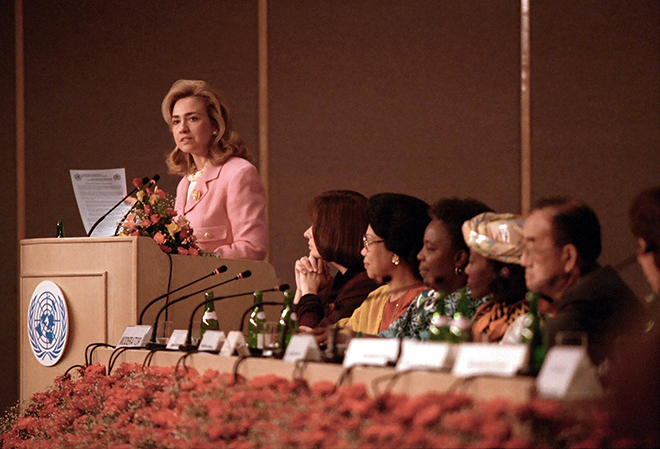In an interview with the national newspaper Aftenposten, Cathrine Holst (ARENA and the Department of Sociology and Human Geography, University of Oslo) states that there are many signs of a global setback for women's rights at the moment.
The Fourth World Conference on Women in Beijing in 1995 was widely considered a success. The participating countries committed to a range of concrete and comprehensive measures towards gender equality.
– 20 years later, in 2015, Beijing+20 was supposed to be the follow-up conference. It ended in a total collapse, Holst says to Aftenposten.
– The final document is non-binding and lacks direction. The negotiations met fierce resistance, not least from conservative Muslim states, Russia, the Vatican and Christian conservatives. For instance, Russia systematically set out to replace 'women's rights' with 'protection of the family'.
European contributions to gender equality
Holst's research on this issue is part of the international research project Reconsidering European Contributions to Global Justice (GLOBUS), which is coordinated by ARENA. The project sets out to critically examine the European Union's contribution to global justice. Gender is a cross-cutting concern of the project.
The EU is widely considered to have been a central agenda setter at the 1995 World Conference. But what was the Union's role at the conference 20 years later? Did the European Union contest the efforts of Russia and others to undermine women's rights? Holst and the GLOBUS project investigate how EU-Russia tensions came to expression under the Beijing+20 negotiations.
Gender equality is still a provocative idea
Holst has also followed parliamentary debates in Poland, Hungary and other eastern European states where one finds a clear anti-feminist tendency.
– To many, gender equality is still a provocative idea. You often find anti-feminism together with nationalism, anti-immigration, and opposition to the EU, where the claim is that feminists and elites are in power, Holst says to Aftenposten.
In the Nordic countries, however, gender equality is strongly supported. The last 30 years, the share of people who think that gender equality has gone too far has been remarkably stable at only 6-7 percent.
Gender and global justice
GLOBUS is a research project that combines normative and empirical research in order to critically examine the European Union’s contribution to global justice. The project undertakes research on a range of issue areas, including migration, trade and development, climate change and security. Gender is addressed as a cross-cutting concern across all issue areas. Read more at globus.uio.no.
